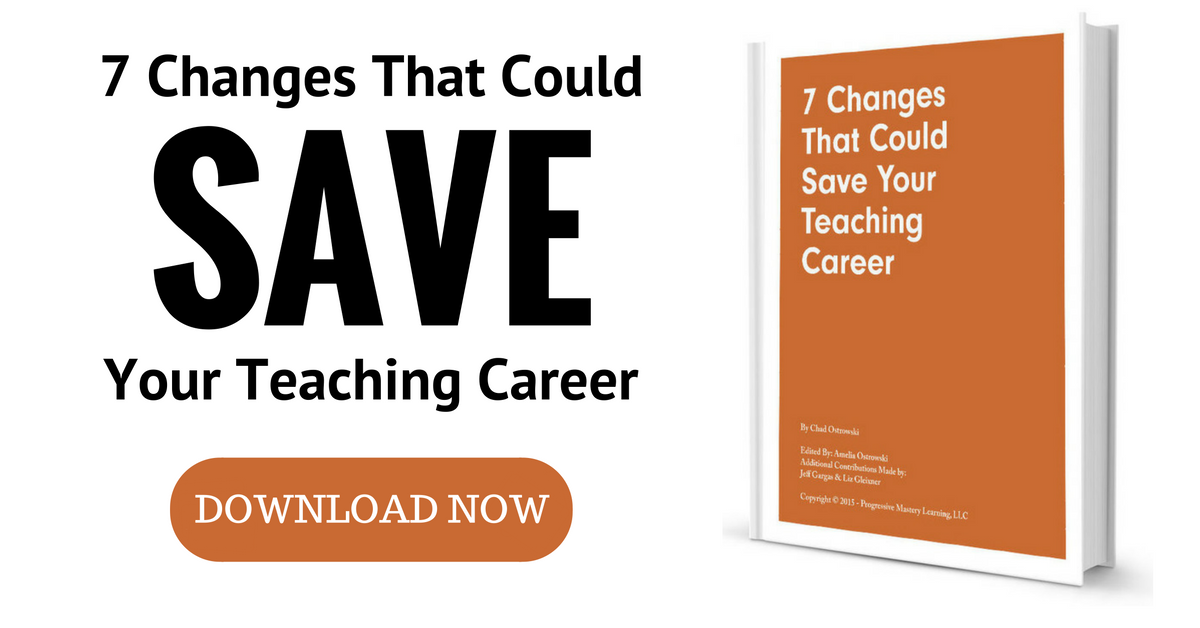TL;DR:
- Teachers are whole people who oftentimes surrender themselves to this profession.
- The idea that teaching is an extension of mothering began during industrialization and continues to this day, creating the perception that teachers should put the needs of students before themselves.
- Comparing teachers to superheroes is problematic because it’s a thinly veiled manipulation that justifies the injustice and minimizes the struggles of educators. Ideas like that can lead to burnout.
- Now is the time to forge new paths and change the perception of teachers to prevent burnout and better serve students.
I am a teacher. I’m also a two-time burnout survivor who has tried to leave teaching multiple times.
I know firsthand what it’s like to surrender yourself to this profession—to give so much that your physical and mental health suffers, and you have nothing left for anyone or anything else.
My story is one among a sea of many like it.
How It Started
America’s public school system has long endorsed the concept of unwavering devotion to children. Overworked, overwhelmed teachers have long been the norm. Yet, we only consider how the American Education System fails its students. We neglect the reality that our education system has also failed its teachers.
It perpetuates the idea that “sacrifice” is the only way—the best way. This ideal can be traced back to industrialization when women became dominant figures in America’s public schools. Teaching was viewed as an extension of mothering. Women were expected to remain unmarried so they could dedicate their lives to educating children. Those who chose to pursue family life were forced to resign because it would “detract” from a teacher’s commitment to her students.
This is the crux of teaching culture in the U.S.
Two hundred years later not much has changed.
To call teachers “superheroes” is to exempt us from the human experience. This well-intended notion has become a thinly veiled manipulation that justifies the injustice and minimizes the struggles of educators. Click To TweetHow It’s Going
Now more than ever before, teachers are expected to sacrifice most of themselves for the benefit of their students. These expectations are often masked in common phrases we’ve all heard.
“School family”
“Good teachers are like candles, consuming themselves to light the way…”
“Teachers are superheroes…”
Inherently, each of these clichés insinuates that others come before self at any cost. While selflessness and sacrifice aren’t bad, they become problematic when encouraged at the expense of wellbeing and wholeness.
To be clear, I love teaching.
I treasure my relationships with my students.
But it is difficult to operate within a system that tells you that you must sacrifice your being—your very personhood—to teach well.
Teachers are not superheroes.
We breathe.
We laugh when something is funny.
We cry when we’re hurt.
We scream when we’re angry.
To call teachers “superheroes” is to exempt us from the human experience. This well-intended notion has become a thinly veiled manipulation that justifies the injustice and minimizes the struggles of educators.
Why We Teach
Teachers, most of us, genuinely enjoy this job. We chose to teach for the “light bulb moments” and the connections. We chose it because of a passion that stemmed from a sincere desire to help children.
…yet so much of what we do is not that.
We prepare our students for standardized tests that create even more division for already marginalized populations.
We spend hours preparing lessons and activities that fit someone else’s idea of what effective teaching looks like.
And we tolerate the effects of legislation created and passed by non-educators that prioritize political agendas rather than the educators and students they impact.
But our passion burns bright and we love what we do.
We allow ourselves to be exploited because somehow, we remain steadfast in our original intentions and we are determined to effect positive change for our students.
[scroll down to keep reading]
During this global crisis, we’ve continued to do the same.
Through the uncertainty, fear, and novelty of such an extreme circumstance, we are doing what we’ve always done—our best. And if that isn’t enough, we adapt and make our best better.
If COVID-19 has taught us anything, it’s that schools and teachers play critical roles in our society.
And we deserve politicians and lawmakers and administrators who will prioritize the whole teacher, just as they’ve claimed to prioritize the whole child.
Instead, we are placated with inspirational trinkets and impersonal emails about how we can do anything. We are being asked to pour from cups that have long been drained dry.
The world around us has changed.
It’s time for teachers to have to change, too.
Now is the time to forge new paths. For our education system, that must include the way we perceive and identify teachers. Our health and wellness, in every capacity, is in everyone’s best interest. Whole teachers are happy and the impact of a happy teacher is far greater than that of the overworked, overwhelmed one.
In our profession, we’re frequently expected to have answers. I don’t exactly have answers here, but I do know this:
I am not your superhero.
I am a person, wife, sister, daughter, friend…who chose to teach.
We (teachers) deserve better.
And now, right now, is the perfect time.
About Alexis Shepard
Alexis Shepard is a 9th year middle school teacher in Upstate, South Carolina with both middle level and elementary experience. After multiple encounters with burn-out, a desire to take steps towards self-care led to the creation of her brand, The AfroEducator. Originally intended to facilitate connections with likeminded educators, a passion was ignited in Alexis to empower teachers towards wellness.
In her work, Alexis seeks to create pervasive perceptions of wellness that will improve teacher outlook and sustainability. She champions teacher self-care through education, reflection, and dialogue. Alexis believes that by sharing stories, she can inspire and empower teachers to take control of their own narratives so that they can teach and live with joy.



